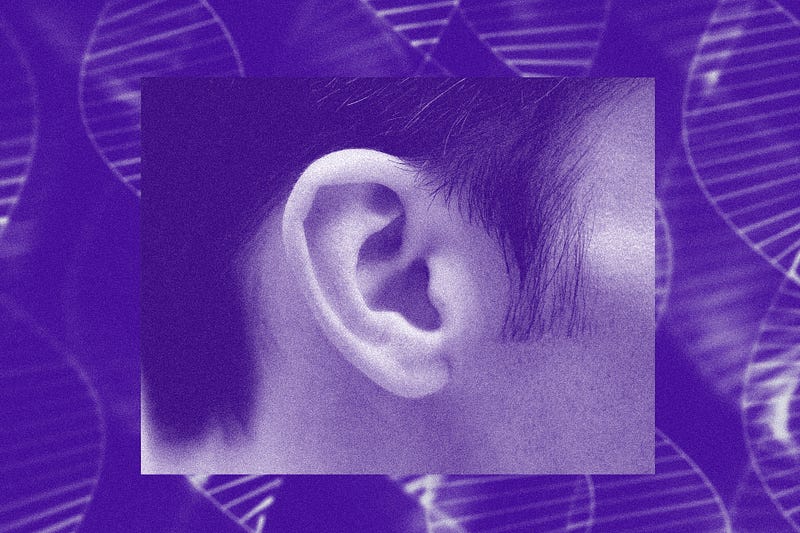A Revolutionary Gene Therapy for Treating Deafness
Written on
Chapter 1: The Promise of Gene Editing
Recent advancements in genetic engineering are paving the way for potential treatments for hereditary deafness. Researchers from Boston Children's Hospital and the Broad Institute of MIT and Harvard are exploring a groundbreaking method that could allow for the correction of genetic hearing loss with just a single ear injection.
This cutting-edge technique, known as base editing—sometimes referred to as CRISPR 2.0—has shown promise in temporarily restoring hearing in deaf laboratory mice. The scientists successfully targeted a mutation in the TMC1 gene, which is responsible for profound hearing loss in infants who inherit it from both parents.
Approximately two to three out of every 1,000 newborns in the United States experience some form of hearing impairment, often due to genetic factors. While current treatments like hearing aids and cochlear implants can assist in amplifying sound, they do not address the root genetic issues causing the hearing loss.

Section 1.1: Understanding Gene Structure
Genes consist of sequences made up of four chemical bases: A, C, G, and T. These bases pair specifically; C pairs with G, and A pairs with T. Mutations happen when these bases are misordered. Unlike CRISPR, which can edit entire genes, base editing allows for the precise substitution of a single base pair.
The research team applied their base editing technique to deaf mice with the TMC1 mutation, effectively converting a C-G base pair to a T-A pair to rectify the genetic error. Their findings were published in Science Translational Medicine on June 3.
Section 1.2: Results of the Study
Although only a quarter of the ear cells in the mice were successfully edited, this was sufficient to restore partial hearing. A single injection of the gene-editing treatment reversed abnormalities in the inner ear hair cells crucial for hearing.
To assess the effectiveness of the treatment, researchers clapped near the treated mice. The previously deaf mice reacted by jumping and turning towards the sound. More rigorous tests involved measuring brain wave activity in response to various sound levels, revealing that the treated mice could detect sounds as faint as 60 decibels—comparable to a normal conversation—while untreated mice could not hear sounds below 110 decibels, akin to the volume of a rock concert.
Chapter 2: Future Implications
Deaf toddler can hear after world-first gene therapy | DW News - YouTube
This video highlights a groundbreaking case of gene therapy successfully restoring hearing in a child, showcasing the potential of genetic interventions in treating deafness.
Restoring hearing loss with gene therapy - YouTube
In this video, experts discuss the advancements in gene therapy aimed at reversing hearing loss, providing insights into the ongoing research and its future directions.
Co-author Jeffrey Holt, a professor at Harvard Medical School, previously used gene therapy to alleviate deafness in mice with the same mutation. However, that approach only mitigated the effects of the defective gene. The current study represents a significant advancement by directly correcting the genetic anomaly.
With over 70 mutations linked to hearing loss identified in the TMC1 gene among humans, Holt expressed optimism that this innovative technique could gradually restore hearing and balance related to the inner ear.
While earlier attempts to rectify genetic mutations responsible for deafness have shown promise in lab mice, there are still concerns regarding their safety and effectiveness in humans. Notably, the hearing improvement observed in the study declined after six weeks, suggesting that the benefits may not be permanent. As only a fraction of the ear cells were edited, the untreated cells continued to deteriorate, resulting in a return of hearing loss.
Researchers aspire to develop a one-time injection that could yield lasting effects. Though this gene-editing therapy is not yet ready for human trials, the preliminary findings signify a step forward in the potential treatment of various genetic forms of deafness.